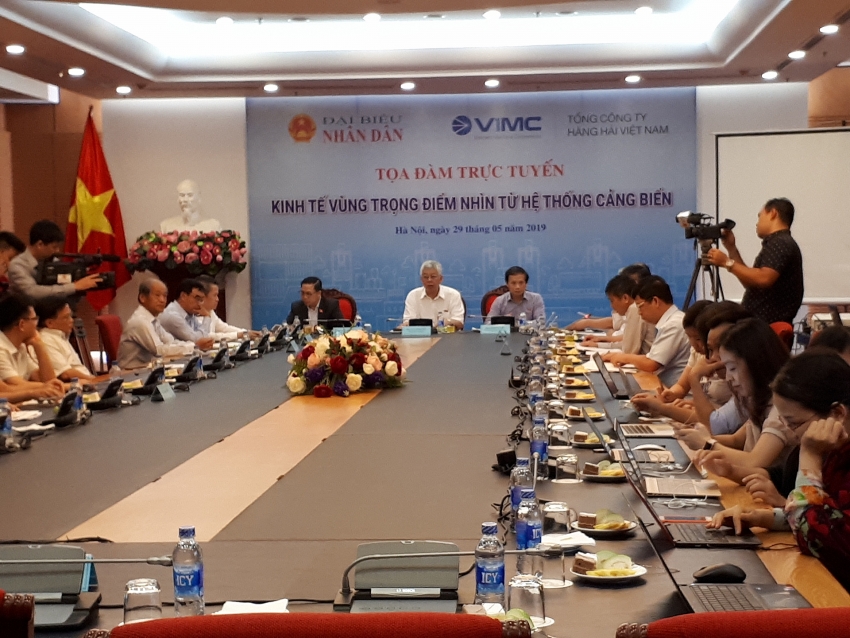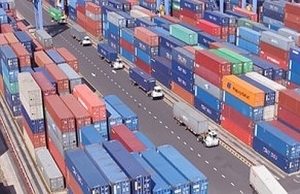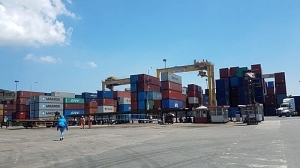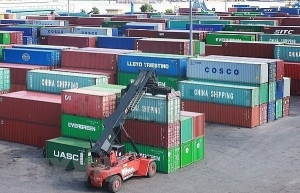Vietnam’s seaport development needs solutions for further growth
 |
| Businesses and experts discussed solutions to seaport development |
Businesses and experts gathered at a conference on May 29 to discuss the advantages and problems facing seaport development across Vietnam, as well as solutions to increase their efficiency to better serve the development of key economic hubs across the country.
“Vietnam’s seaports have many advantages and great growth potential, but they have not been fully exploited. Vietnam focuses on exports, meaning that we need seaports. However, the problems here are high logistics costs and serious congestions at seaports,” said Nguyen Dinh Cung, head of the Central Institute for Economic Management (CIEM).
Cung took the seaports in Ho Chi Minh City, the southern province of Ba Rai-Vung Tau, and Haiphong as examples, which are home to key economic hubs, with manufacturing making up 60 per cent of the country’s GDP. “If the region grows 1 per cent, the country’s GDP expands by 0.6 per cent. Thus, if we reduce logistics costs and traffic jams, we can grow further.”
The other problem is connectivity with other means of multi-modal transport such as road, railway, and waterway.
Having over one million square kilometre of sea area with more than 3,200 kilometres of coastline, Vietnam now has 45 seaports, a number of inland container depots (IDCs) and big logistics hubs. Annually, the seaport system handles about 90 per cent of the country’s total volume of imports and exports, creating a driving force for national economic development.
However, the country still faces difficulties and problems in developing seaports efficiently and comprehensively, including a lack of connectivity with other means of multi-modal transport such as roads, railways, waterways. There are also problems related to inconsistency in land use planning, master planning on industrial development, as well as infrastructure planning, among others.
Nguyen Duc Kien, vice chairman of the National Assembly's Economic Committee, said that seaports have an important role in national economic development. However, there is no technical infrastructure connectivity for them. For example, the Cai Mep-Thi Vai port area in the southern province of Ba Ria-Vung Tau now has no railway connection and for a long time had no roads to connect.
“We have developed the Lach Huyen international seaport with loans and consultancy from Japan. However, it also has no railway connection. It is a big problem,” Kien added.
All participants agreed that the country should soon have policies and solutions, including planning adjustments to fully tap into the potential of seaports.
They proposed the establishment of a seaport management authority and the issuance of policies to attract private investment into the sector.
Despite the shortcomings, Vietnam’s seaports have seen strong growth since 2000 with an average growth of 11.1 per cent, with container ports growing by 14.4 per cent. In terms of volume of goods, the figure is also impressive, rising from 73 million tonnes in 2000 to 525 million in 2018. Especially, container throughput rose 15-fold.
 | Thousands of scrap containers congested at Cai Mep-Thi Vai seaport About 3,000 scrap containers comprising steel, plastics and paper have been congested at Cai Mep-Thi Vai seaport complex as owners have not received their goods, ... |
 | Lien Chieu seaport urgently seeking investment Danang city is stepping up the construction of Lien Chieu Port, however, it is struggling to mobilise capital. |
 | Thousands of containers lying at Vietnam’s seaports Thousands of containers containing recyclable and used materials are piling up at seaports in the localities of Hai Phong, HCM City and Ba Ria–Vung Tau, ... |
What the stars mean:
★ Poor ★ ★ Promising ★★★ Good ★★★★ Very good ★★★★★ Exceptional
Related Contents
Latest News
More News
- SK Innovation-led consortium wins $2.3 billion LNG project in Nghe An (February 25, 2026 | 07:56)
- THACO opens $70 million manufacturing complex in Danang (February 25, 2026 | 07:54)
- Phu Quoc International Airport expansion approved to meet rising demand (February 24, 2026 | 10:00)
- Bac Giang International Logistics Centre faces land clearance barrier (February 24, 2026 | 08:00)
- Bright prospects abound in European investment (February 19, 2026 | 20:27)
- Internal strengths attest to commitment to progress (February 19, 2026 | 20:13)
- Vietnam, New Zealand seek level-up in ties (February 19, 2026 | 18:06)
- Untapped potential in relations with Indonesia (February 19, 2026 | 17:56)
- German strengths match Vietnamese aspirations (February 19, 2026 | 17:40)
- Kim Long Motor and AOJ Suzhou enter strategic partnership (February 16, 2026 | 13:27)

 Tag:
Tag:




















 Mobile Version
Mobile Version